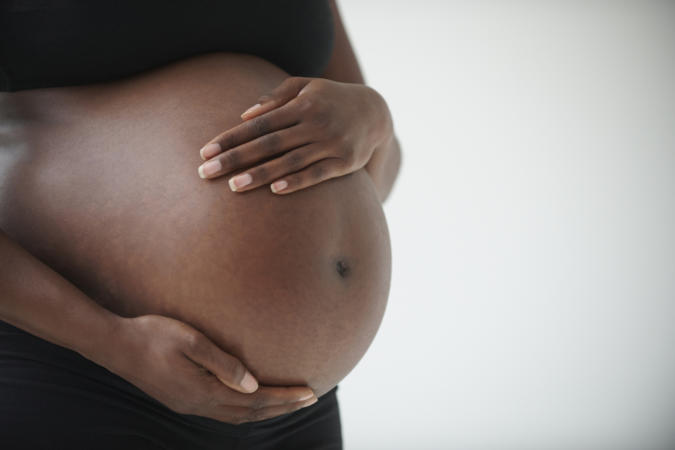It’s 2020 and Black women are still dying at disproportionate rates during childbirth.
According to a report from USA Today, Black women are currently dying in childbirth 2 ½ times more than their white counterparts.
Amber Rose Issac, a 26-year-old graduate school student from the Bronx, New York died just four days after tweeting about her experience with “incompetent doctors” despite giving birth to a healthy baby boy, USA Today reports. She was ignored by doctors who failed to diagnose a rare condition that caused her blood platelet levels to drop dangerously low.
Can’t wait to write a tell all about my experience during my last two trimesters dealing with incompetent doctors at Montefiore
— ✨ (@Radieux_Rose) April 17, 2020
“If Amber was white, Amber would be here,” said her partner Bruce McIntyre. “Amber would have got standard care if she were white. Amber did not receive standard care, and that’s the problem.”
Data released earlier this year by the National Center for Health Statistics reveals that although Black women make up nearly 13 percent of the population of American women, they die in numbers extremely close to white women who make up 60 percent.
In the most recent years analyzed by the Centers for Disease Control and Prevention (CDC), from 2006 to 2017, there were 2,432 Black women who died in comparison to 2,756 white women. Studies also revealed that about 700 women die from pregnancy-related complications in the U.S. every year and that 60 percent of those cases are preventable.
Tennis superstar Serena Williams is another example when it comes to doctors not listening to Black women when they express health concerns, specifically during their pregnancy.
Williams was certain she was experiencing a pulmonary embolism after giving birth via a C-section. Due to a history of blood clots, she was aware of what those symptoms looked like.
According to a cover story in Vogue, Williams shared a nurse tried to convince her to believe she was probably confused by her pain medication, and a doctor refused her a CT scan and conducted an ultrasound on her legs instead.
Eventually, she had the CT scan and was correct. Williams had indeed experienced a pulmonary embolism.
“As famous as she is and if we want to throw in economics, of a certain means, she’s still a woman of color. She’s African-American,” said Dr. Paige Long Sharps, physician advisor at University Hospital in Newark. “And now here she is post-delivery complaining of ‘I can’t breathe. I’m having difficulty breathing. I’m short of breath.’ And she was brushed off.”
The facts are all there as Black women continue to suffer due to racism and prejudice during childbirth, but the question at hand is when will America stand up and protect Black women?


